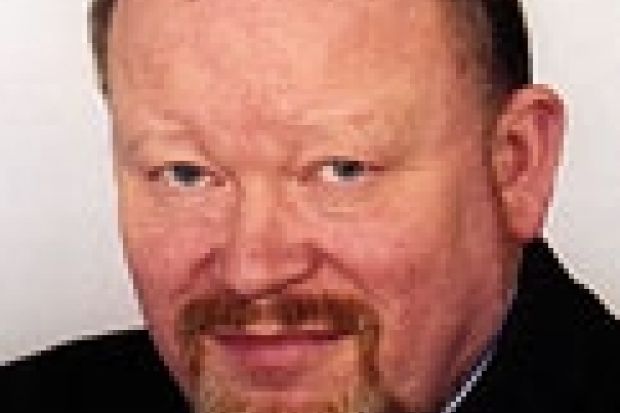Universities will face tougher inspection regimes if differential tuition fees are introduced, according to John Randall, chief executive of the Quality Assurance Agency.
If the government allows universities to charge higher fees, parents who are faced with increased tuition costs will demand more robust information on standards, Mr Randall said.
He has set out his views in a paper seen by The THES , in which he predicts that differentiated fees will cause the sector to become more diverse, creating need for different levels of inspection for different institutions.
The paper makes the case for maintaining or increasing scrutiny at most institutions.
Mr Randall said in his paper: "The new consumer interest that has arisen with the introduction of fees, and that would be greatly heightened by differential fees, is the interest of the person who pays the fees.
"(Parents) will expect value for money to be demonstrated clearly. They will be used to published quality measures applying to other services that they use, for example, schools and the health service. They are likely to expect no less of higher education, regardless of the status of the institution.
"If top-up fees are introduced, they will represent, for the individual, a financial commitment at least as significant as many of those for which the law provides a detailed regulatory regime in fields such as financial services."
This week, Mr Randall told The THES : "If differential fees were introduced, the public interest would be great in there being a sound, robust and reliable way of coming to judgements."
Only world-class institutions - such as the universities of Cambridge and Oxford, Imperial College, London, and University College London - would have the chance of escaping more detailed probes, Mr Randall said.
The aspiring elite - such as the universities of Warwick and York - would see inspection as "an independent means to verify their claims to a seat at the top table", he said.
Institutions outside the elite would be forced to compete largely on price. Thorough inspections would be needed to ensure that institutions were not tempted to cut corners when, for example, accrediting prior and work-based learning, Mr Randall said.
"Where there is significant competition on price, it will be vital to ensure there is an effective system of independent scrutiny to protect academic standards, the interests of students, and the reputations of higher education institutions," he wrote in his paper.
David Young, policy adviser for standards and quality at Universities UK (formerly the Committee of Vice-Chancellors and Principals), said:
"Whatever the fee arrangements may be, now or in the future, students need sound, useful information about standards and programme content and about the teaching they will receive, and a system of reports that communicates this."
David Dill, who studies university reform and is professor of public policy analysis and education at the University of North Carolina at Chapel Hill, said: "The more competitive the nature of the higher education market, the more consumers seek information on academic quality."
Researchers at the Rand policy research institute in Santa Monica, California, have concluded that US institutions just below the academic elite spend income from tuition fees on mimicking the outward appearance of prestigious universities rather than improving their teaching. The report, compiled by Dominic Brewer, Susan Gates and Charles Goldman, is due to be published in the next few weeks.
Professor Dill said the work highlighted cases that were "an example of how the pursuit of academic prestige in the absence of vigorous external quality assurance can pervert the public interest".
Sandra Burslem, vice-chancellor of Manchester Metropolitan University, was critical of Mr Randall's approach. She said: "The hypothesis is put forward that, if top-up fees were introduced, it would lead to a far greater differentiation within the market and that a greater differentiation of scrutiny in a system of subject review would be appropriate. This conclusion cannot necessarily be substantiated.
"Given the recent consultant's report to the Higher Education Funding Council for England on accountability, it could be argued that a lighter touch (to quality assurance) should be universally applicable."
The government has said repeatedly that it has no plans to allow universities to charge higher and different levels of tuition fees, but it has not ruled them out if it wins a second term of office.
Universities UK is working on a number of future funding models, including differential fees.
Mr Randall's paper, which will be published by the Open University's Centre for Higher Education Research and Information, will contribute to speculation over whether differential fees will be introduced in the near future.
Register to continue
Why register?
- Registration is free and only takes a moment
- Once registered, you can read 3 articles a month
- Sign up for our newsletter
Subscribe
Or subscribe for unlimited access to:
- Unlimited access to news, views, insights & reviews
- Digital editions
- Digital access to THE’s university and college rankings analysis
Already registered or a current subscriber?
